Q1: Do you provide unpaid care for a friend or family member who due to illness, disability, a mental health problem or an addiction cannot cope without your support?
Q2: Do you think you need any advice and support for yourself to carry on your caring role?
Q3: Would you like to know more about support services for the person that you care for?
Q4: Do you need a break from your caring role?
Q5: Do you want to talk or contact someone about your caring role?
Q1: Do you provide unpaid care for a friend or family member who due to illness, disability, a mental health problem or an addiction cannot cope without your support?
Answer: No
Sorry from the information you have given you are not a carer. A carer is an individual who provides or intends to provide care for another individual. This could be many different roles from a 15-year-old girl looking after a parent with an alcohol problem, a 40-year-old man caring for his partner who has terminal cancer, or an 80-year-old woman looking after her husband who has Alzheimer's disease. If you know someone who is a carer why not tell them to do this short quiz to see what if they require any support with their caring role.
Q1: Do you provide unpaid care for a friend or family member who due to illness, disability, a mental health problem or an addiction cannot cope without your support?
Answer: Yes
A carer is an individual who provides or intends to provide care for another individual. This can includes parent carers, a parent is viewed as a carer not only if their child is physically disabled but also if their child exhibits problematic behaviour which may not be due to a condition. The lack of formal diagnosis should not prevent parents being considered carers and they should receive the support they need.
The Carers Act defines that person could be caring for a person with a fluctuating level of care due to their condition, so the carer would not always be providing care but rather intending to do so should the need arise. Anyone could be a carer – a 15-year-old girl looking after a parent with an alcohol problem, a 40-year-old man caring for his partner who has terminal cancer, or an 80-year-old woman looking after her husband who has Alzheimer's disease.
Caring can have an impact on many aspects of your life, our website and facebook pages provide information about how you can get more support to carry on this role.
Q2: Do you think you need any advice and support for yourself to carry on your caring role?
Answer: No
It is great that you are managing your caring role but why not keep yourself up to date with our website and facebook pages or give us a call if anything changes.
Q2: Do you think you need any advice and support for yourself to carry on your caring role?
Answer: Yes
On our website our advice and information is split into the following areas. Click to find out more about the support carers can get on the following topics.
Often we are able to give general advice but the information on these pages will also direct you to organisations that have specialist knowledge in these areas.
The Carers Act was implemented from 1st April 2018, this means that you are entitled to a Carers Support plan. This will help you to think about your own personal circumstances in relation to the caring role, and how you feel about it. It will help you make decisions and plans for your future, as well as looking at the help and support you may need to enable you to care in a healthy, happy way, if this is what you choose to do.
Lots of carers worry about what will happen to the person they care for if something happens to them. As part of the carers support plan you can also develop an emergency plan which could be put into place if anything happens to you. To find out more visit our Carer Support page.
Q3: Would you like to know more about support services for the person that you care for?
Answer: No
We are glad that you have the services which you think meet the needs of the person that you care for.
Q3: Would you like to know more about support services for the person that you care for?
Answer: Yes
Here are some of the other departments and services that may be able to help you:
- Independent living centre
- Occupational Therapy
- Physiotherapy
- Speech therapy
- Shetland Island council - Adult & Children's services
You can find information about all of these services on the Help available locally page
Q4: Do you need a break from your caring role?
Answer: No
We are pleased to hear that at the moment you do not require a break from your caring role. If this changes, you are welcome to sign up to our Short Break and Respitality schemes.
Q4: Do you need a break from your caring role?
Answer: Yes
We have a number of ideas to help you take a short break from your caring role. Being a carer can be hard work and you might need to take a break sometimes.
It is really important to get some regular breaks from your caring role. This can be anything from a couple of hours to several weeks, away from caring to give you time to recharge your batteries. You may find that it helps you stay well and feel better able to cope with caring.
The following may be useful:-
Q5: Do you want to talk or contact someone about your caring role?
Answer: No
If you change your mind there are a number of ways you can contact us.
Q5: Do you want to talk or contact someone about your caring role?
Answer: Yes
Please fill in our referral form and we will contact you within 5 working days. If it is more urgent you may need to call an other organisation that has 24/7 support Eg Samaritans or social work.






